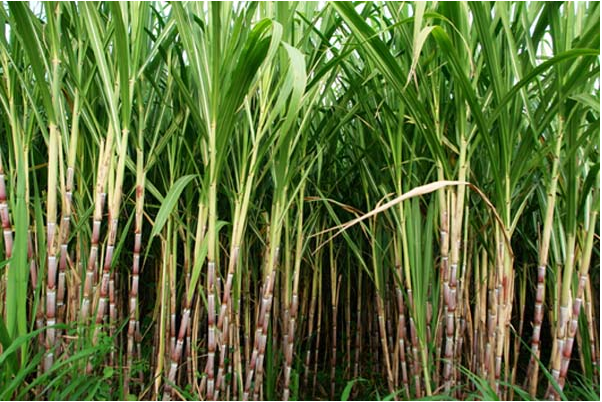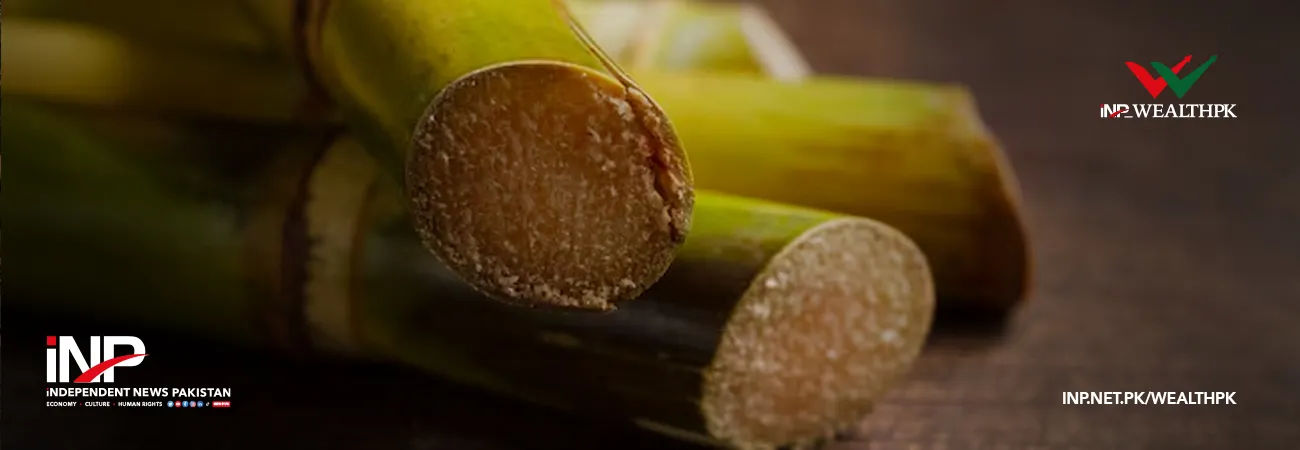INP-WealthPk
Muhammad Luqman
Above-average temperatures in the Punjab plains during the second half of September have slowed down the maturity of the sugarcane crop, potentially causing at least a two-week delay in the start of the crushing season.

“Temperatures have remained above 30 degrees Celsius during this period, whereas sugarcane matures best between 20 and 29 degrees Celsius,” said Muhammad Kashif Munir, Director and Chief Scientist at the Sugarcane Research Institute (SRI), Faisalabad. Talking to Wealth Pakistan, he said that sugar recovery during the first week of October this year has been recorded at around 9% — below the desired level.
He explained that for economically viable crushing by the mills, the sugar content in cane should ideally range between 10 and 12%. However, Kashif expressed hope that the ripening process would accelerate in the coming weeks as temperatures in central Punjab have now dropped to around 28-29 degrees Celsius. He clarified that floods had not significantly damaged the sugarcane crop in Punjab.
“Their effect on sugar content may not be as severe as that of temperature,” Kashif added. He said the sugarcane crushing season might begin after mid-November this year. “The sugar industry in Pakistan is seasonal, as mills typically crush sugarcane for about three months,” he noted. Pakistan’s sugar production, from over 80 sugar mills, more than half in Punjab, is expected to exceed 6.5 million tons, derived from around 65 million tons of sugarcane.
Kashif also revealed that SRI was developing climate-smart sugarcane varieties that are more resistant to high temperatures prevalent in the Punjab plains. At the same time, the farming community has urged the Punjab government to instruct sugar mills to start crushing from November 1, ensuring the timely cultivation of the wheat crop.
“Any delay in the start of sugarcane crushing may lead to late sowing of wheat, which would ultimately affect the yield of this staple cereal,” said Chaudhry Khalid Hussain Baath, Chairman of Pakistan Kissan Ittehad. Talking to Wealth Pakistan, he said that the sugarcane crop was now ripe enough to be crushed by the mills. “Only by clearing the sugarcane fields can farmers sow wheat on time,” he said, adding that sowing wheat after November 20 would pose a threat to Pakistan’s food security.
He urged the federal and provincial governments to protect the rights of the farming community instead of supporting a particular industry. Meanwhile, the Pakistan Sugar Mills Association (PSMA) has claimed that there are sufficient sugar stocks in the country to meet the needs of Pakistan’s 240 million population until November 18.
These stocks, the association stated, need to be disposed of before the start of the new crushing season. A PSMA spokesperson added that floodwaters were still standing in farmers’ fields, making it impossible to harvest the crop until they recede. He also claimed that floodwaters had adversely affected the crop’s quality, particularly its sugar content.
Credit: INP-WealthPk









